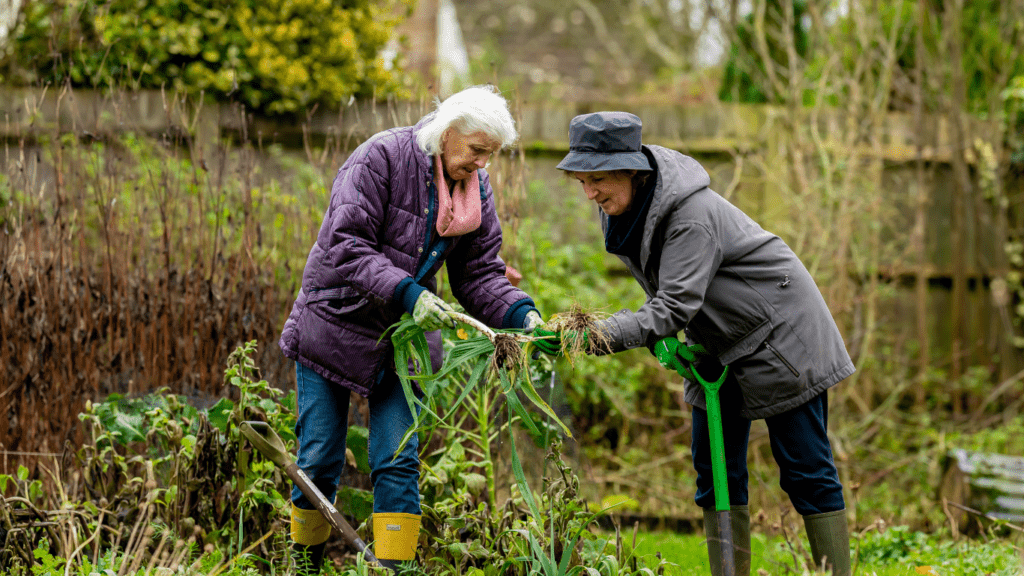Stepping into the world of urban gardening is not just about planting seeds; it’s about nurturing your well-being. As I’ve delved into the realm of cultivating green spaces in the midst of concrete jungles, I’ve discovered the profound therapeutic benefits it offers. Urban gardening isn’t merely a hobby; it’s a form of self-care that can rejuvenate both the body and the mind.
In my exploration of urban gardening as a therapeutic activity, I’ve witnessed how tending to plants can be a powerful stress-reliever and a source of mental clarity. The act of connecting with nature in the heart of the city can provide a sense of peace and tranquility that is often elusive in our fast-paced lives. Join me as we delve deeper into the world of urban gardening and uncover the healing powers it holds for all who seek solace amidst the urban bustle.
The Concept of Urban Gardening
Urban gardening is the practice of cultivating plants in urban environments, such as rooftops, balconies, or community gardens. It provides city dwellers with the opportunity to connect with nature, even in the midst of a concrete jungle.
What Is Urban Gardening?
Urban gardening involves growing a variety of plants, from flowers to vegetables, in limited spaces within city limits. It enables individuals to create green oases in densely populated areas, promoting biodiversity and enhancing the aesthetic appeal of urban landscapes.
Evolution of Urban Gardens
Over the years, urban gardens have evolved from community allotments to rooftop gardens and vertical farms. These innovative approaches to urban agriculture not only contribute to food security but also play a crucial role in mitigating the environmental impact of urbanization.
Urban Gardening as a Therapeutic Activity
Exploring the psychological and physical advantages of urban gardening sheds light on its restorative impacts on mental and physical well-being in bustling city environments.
Psychological Benefits of Urban Gardening
Aiding in stress reduction, urban gardening provides a calming outlet for enhancing mental clarity and fostering a sense of accomplishment in city dwellers. Engaging in planting and nurturing greenery in urban spaces can alleviate anxiety and promote mindfulness, offering a peaceful retreat from the urban hustle.
- Physical Health Benefits
Apart from its psychological merits, urban gardening also contributes to physical well-being. Tending to plants in urban settings like rooftops and balconies involves physical activity that boosts fitness levels and encourages a more active lifestyle. The exposure to fresh air and sunlight while gardening enhances vitamin D absorption, supporting overall health and immunity.
- Implementing Urban Gardening
Starting with urban gardening is simple and rewarding.
Getting Started with Urban Gardening
To begin urban gardening, one can start small with easily manageable plants like herbs or potted flowers to gain confidence. It’s important to choose a suitable spot with adequate sunlight and access to water for the plants to thrive. Engaging in this activity regularly can enhance one’s gardening skills while providing a sense of accomplishment.
Tools and Techniques for the Urban Gardener
Essential tools for urban gardening include gardening gloves, a trowel, pruners, and watering cans. Utilizing vertical gardening techniques can maximize space in compact urban settings, allowing for the growth of a variety of plants. Additionally, composting kitchen scraps can enrich the soil, promoting healthy plant growth and sustainability in urban gardens.
Success Stories
Case Studies of Effective Urban Gardens
In exploring successful urban gardening initiatives, I’ve come across inspiring case studies that illustrate the transformative power of green spaces in cities. For instance, the community garden project in downtown Seattle not only beautified the neighborhood but also brought residents together, fostering a sense of unity and pride. By repurposing vacant lots into thriving gardens, this initiative not only enhanced the urban landscape but also provided a hub for social interaction and skill-sharing among participants.
Personal Testimonies and Experiences
Listening to personal testimonies and experiences of individuals engaged in urban gardening has been enlightening. From avid plant enthusiasts to first-time gardeners, the stories shared all echo a common sentiment of improved well-being and a deeper connection to nature. One particular account stands out—a city dweller who transformed their tiny balcony into a vibrant oasis filled with herbs and succulents. This individual found solace in tending to their plants, relishing the therapeutic effects of nurturing life amidst the hustle and bustle of city living

 Jameser Knowlesicker is the visionary founder of the project, passionately advocating for urban agriculture and sustainability. His commitment to transforming city landscapes into vibrant green spaces led him to create a platform that disseminates the latest news and trends in urban farming. Jameser focuses on promoting eco-friendly practices and products, emphasizing the health benefits of growing one’s own food. Under his leadership, the project has become a vital resource for urban gardeners and sustainability enthusiasts, inspiring collective efforts to foster environmental sustainability and enhance urban life.
Jameser Knowlesicker is the visionary founder of the project, passionately advocating for urban agriculture and sustainability. His commitment to transforming city landscapes into vibrant green spaces led him to create a platform that disseminates the latest news and trends in urban farming. Jameser focuses on promoting eco-friendly practices and products, emphasizing the health benefits of growing one’s own food. Under his leadership, the project has become a vital resource for urban gardeners and sustainability enthusiasts, inspiring collective efforts to foster environmental sustainability and enhance urban life.